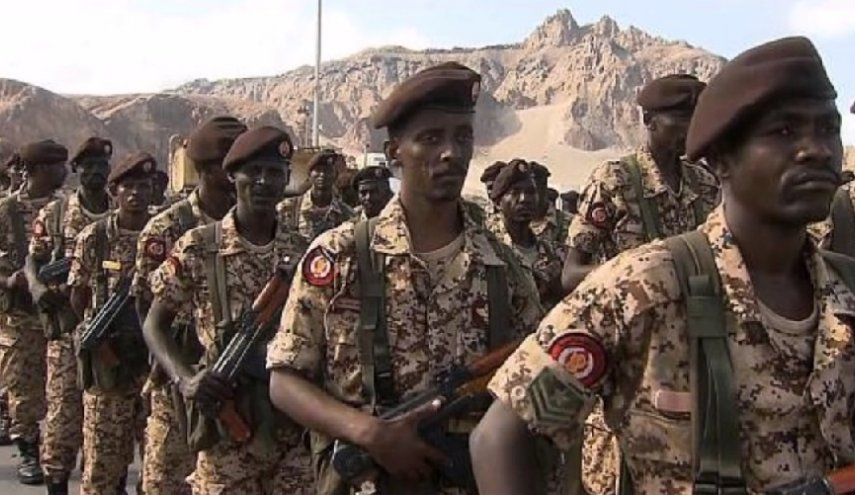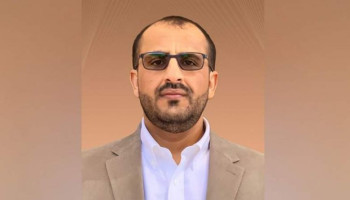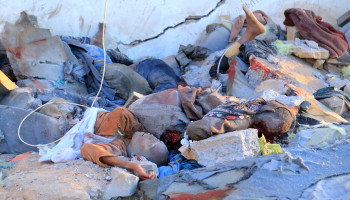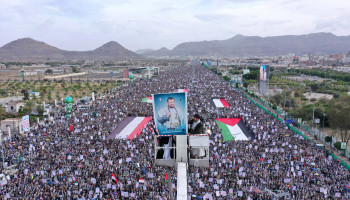An international organization calling on Sudan to withdraw all its forces from Yemen
الثلاثاء, 10 ديسمبر 2019

The Euro-Mediterranean Observatory for Human Rights today welcomed the Sudanese government’s decision to reduce the number of its forces in Yemen to five thousand soldiers, expressing its hope that the Sudanese step would be a prelude to ending the devastating war that has torn this country over the past five years.
The Euro-Mediterranean Observatory, which is based in Geneva, said in a press release - Ansarollah website obtained a copy - that it looks forward to ending the Sudanese military presence and withdrawing all soldiers from Yemen and working with the United Nations and international actors to restore security and hope for millions of Yemenis.
The Euro-Mediterranean explained that the decision to participate Sudan in the aggression against Yemen is due to economic reasons, not political or security, adding that sending thousands of soldiers to participate in a war on the territory of another country and obtaining money in return for this cannot be a solution to the country's economic problems, but rather will transform the country's army into mercenaries carry out illegal missions in exchange for money.
The International Human Rights Observatory indicated that its teams have documented over the past five years several war crimes committed by the Saudi-led aggression forces during their war on Yemen with the participation of the Sudanese forces, which were the largest military force on Yemeni soil.
Yesterday, Sudanese Prime Minister Abdullah Hamdouk stated that Khartoum had reduced the number of its forces in Yemen to five thousand soldiers from 15,000 previously, while it numbered 30,000, according to previous statements by the commander of the Rapid Support Forces, Muhammad Hamdan Diqlo (Hamidati).
Anas Aljerjawi, Director of the Middle East and North Africa in Euro-Med Monitor, said that the Sudanese Prime Minister should take a courageous decision to end the Sudanese military presence in Yemen forever and pay attention to addressing internal issues and supporting living conditions in the country including all segments of the society.
Aljerjawi added that international law does not justify this type of intervention and considers it illegal even if its purpose is to protect humanity. Article (2F7) of the United Nations Charter prohibited interference in the affairs of another country, as it notes: "Nothing in this Charter shall permit the United Nations to interfere in matters that are at the core of the internal authority of a State and there is nothing in it that requires Members to present such matters to be resolved by this Charter."
Press reports indicate that the total losses of the Sudanese army since the beginning of the Yemen war exceeded 8,000, including 4,253 deaths and 3,747 injuries, while local Sudanese sources stated that the number of dead Sudanese forces participating in the Yemeni war reached 850 during the years 2015 and 2016.
Euro-Med Monitor called on all parties involved in the war in Yemen to withdraw its forces immediately, and work to save the millions of Yemeni who face the risk of starvation and the spread of deadly diseases such as Cholera.
Euro-Med Monitor indicated that about 100,000 people were killed as a result of the war in Yemen and that 67% of the civilian casualties were due to the Saudi-led aggression airstrikes, as more than 8,000 people were killed as a result of direct targeting by the aggression.
Euro-Med Monitor stressed that the crimes that the Sudanese forces were involved in under the Arab coalition could initiate international criminal responsibility against the soldiers and leaders involved in the military operations that caused casualties, as those acts constitute war crimes and crimes against humanity, which gives the International Criminal Court the right to punish those involved according to the Rome Statute.
In conclusion, Euro-Med Monitor called on Sudan to withdraw all its forces from Yemen, and investigate violations committed by those forces during their service there, urging the Prosecutor of the International Criminal Court to start investigating serious violations against Yemeni civilians by various parties, which fall within the framework of international crimes that require criminal prosecution by that court.
SH.A.






